Kim Beazley urges Albanese government to lift defence spending
Labor’s revered former defence minister has warned the Albanese government to lift military spending to at least 3 per cent of GDP, as Donald Trump prepares to strain the two nations’ ties by slapping tariffs on Australian exporters.
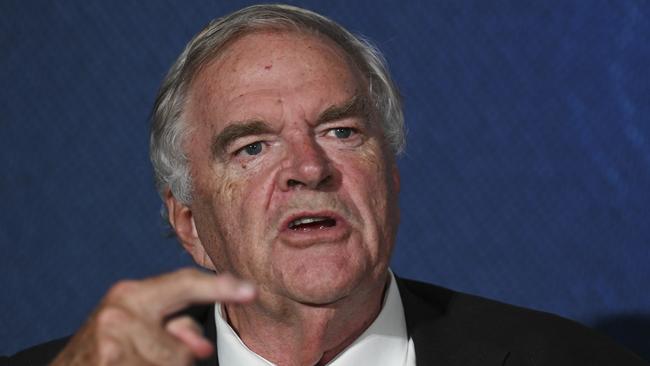
Labor’s revered former defence minister Kim Beazley has warned that the Albanese government needs to lift military spending to at least 3 per cent of GDP in line with US demands, as Donald Trump prepares to strain the two nations’ ties by slapping tariffs on Australian exporters.
Mr Beazley said Australia could not risk going alone on national security, backing the Trump administration’s call for tens of billions of dollars to be added to the defence budget each year. “We can’t afford to run our own game; people are full of piss and wind on that,” the former Labor leader and former US ambassador told The Australian.
“We have to be mindful that we’ve got our limits, but we do have to bear in mind what Trump’s saying and the others are saying. We have to up our spending to 3, 3.5 per cent (of GDP).”
Mr Beazley’s call came amid rising expectations that Australia would be hit with the full force of Mr Trump’s 25 per cent steel and aluminium tariffs, to be unveiled on Thursday AEDT.
The former Labor leader warned Australia was unlikely to be let off the hook, while another former ambassador to the US, Arthur Sinodinos, put the nation’s chances of an exemption at less than 50 per cent.
“I think the President is pretty determined to go down this route, and therefore he’s been conditioning people to the idea that there’s going to be adjustment costs,” Mr Sinodinos said.
Uncertainty over Mr Trump’s tariff agenda and the President’s failure to rule out a recession sent shares on Wall Street plunging and wiped nearly 1 per cent cent off the ASX 200 on Tuesday. Business confidence also slumped on fears of a looming economic shock, according to a new NAB survey.
Federal cabinet met on Tuesday to map out the government’s response to the feared tariff blow, and the prospect of further pain under Mr Trump’s next round of trade measures targeting non-tariff barriers on US products imposed through nations’ regulatory systems.
Australian pharmaceutical and agricultural exporters could be among those in the firing line from the so-called reciprocal tariffs.
Peter Dutton warned he would hold Labor responsible if it failed to secure carve-outs for Australia, arguing that “the Prime Minister needs to frankly roll his sleeves up and get this deal done so that workers’ jobs and the economic activity can be preserved”.
“The most important thing is for the Prime Minister to pick the phone up and speak with the President, and for the Trade Minister to speak to his counterpart, and for the Treasurer to speak to his counterpart, and for the Foreign Minister to speak to her counterpart,” the Opposition Leader said.
But former prime minister Malcolm Turnbull said Labor was dealing with a more hostile White House than when he won a carve out from the President’s first term tariffs in 2018. Mr Turnbull’s case at the time centred around the US’s large trade surplus with Australia. However, trade data released this month has undermined that argument, revealing the US recorded a monthly trade deficit with Australia in January for the first time due to a surge in gold exports to the world’s largest economy.
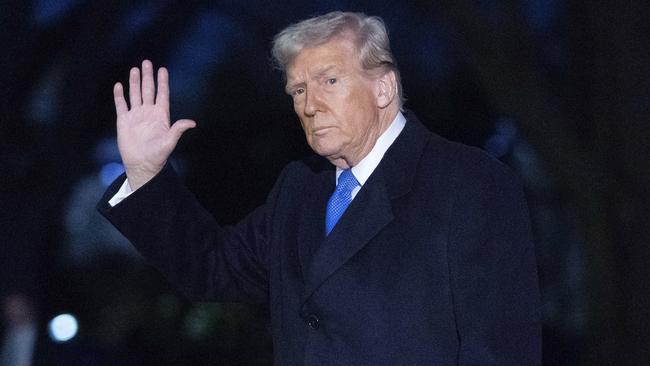
Mr Turnbull defended his comments to Bloomberg TV this week that China would take “massive advantage” of the chaos created by Mr Trump’s policies. The move triggered a retaliatory attack by the President, who branded Mr Turnbull a “weak and ineffective” leader. But the former prime minister bristled when an ABC presenter suggested his comments were reckless, given Mr Trump’s upcoming tariff decision.
“Are you suggesting that we should engage in self-censorship in Australia for fear of offending the huge ego of Donald Trump?” Mr Turnbull asked ABC Radio National’s Sally Sara.
Despite widespread pessimism over Australia’s prospects for a tariff exemption, Trade Minister Don Farrell said the government had not given up.
“We do not want Trump to impose tariffs on Australia and we are doing everything we can to stop that,” he said. “In the event if they are introduced we will do everything we can to get them removed, just as we did with China.”
As Jim Chalmers crafts a fourth Labor budget that’s set to include pre-election cost-of-living relief for voters, updated forecasts are expected to show a downgrade to global and US GDP growth projections.
Mr Trump’s warning of a period of economic “transition” and his sidestepping of a question on the likelihood of a recession sent US markets tumbling on Monday local time, pushing down the S&P 500 fell by 2.7 per cent and the tech-heavy Nasdaq by 4 per cent.
The ASX 200 took its cue from Wall Street, closing down 0.9 per cent and wiping almost $23bn off its value to hit a seven-month low.
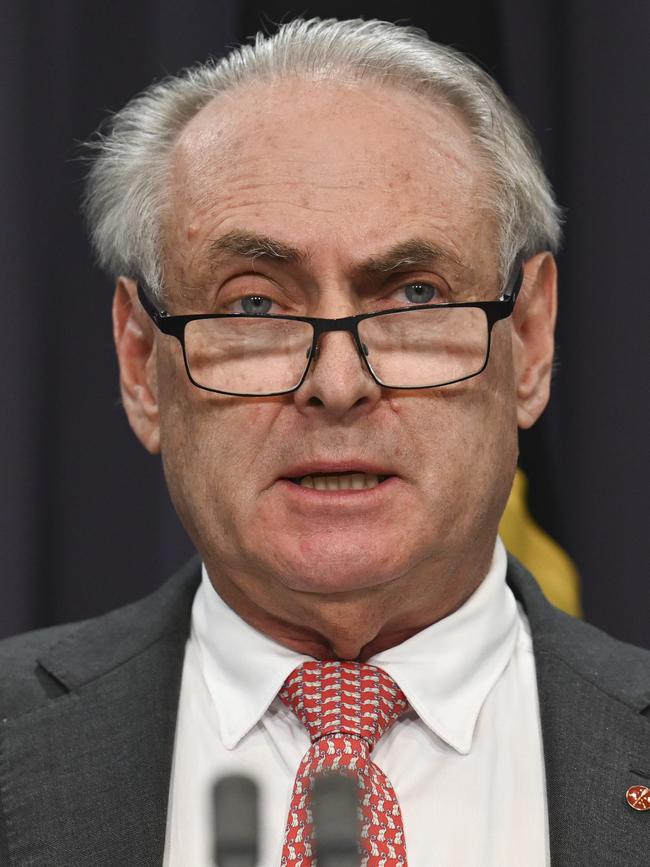
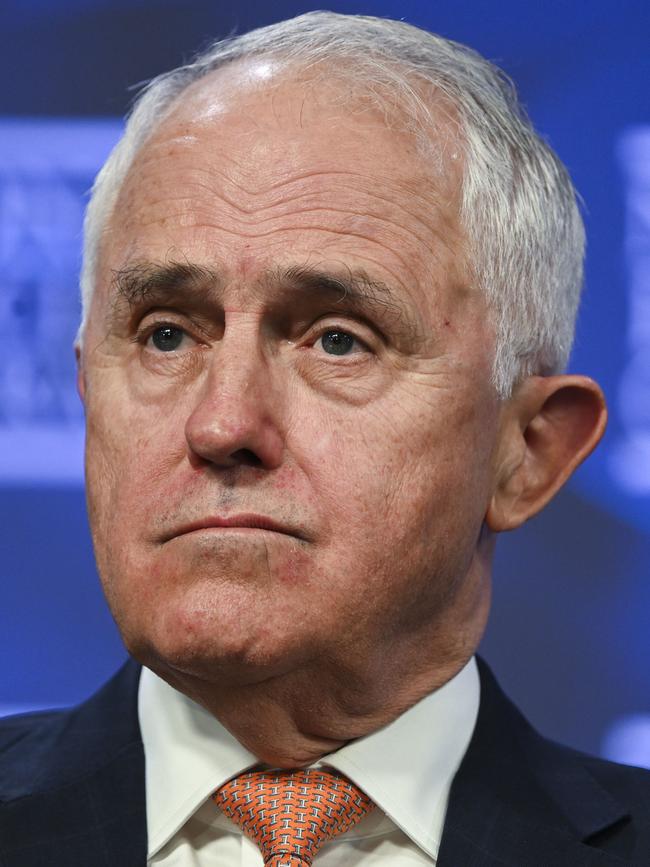
Warwick McKibbin, a former Reserve Bank board member, said Australia was well-placed to avoid the flow-on impacts of a downturn in the US economy.
“We’ve got a flexible exchange rate and we’ve got enough monetary and fiscal capacity to respond,” Professor McKibbin said. “I don’t see a recession here, but I do see a loss of income.”
Professor McKibbin said Australia also stood to be a beneficiary if heightened uncertainty in the US drove capital to exit the world’s largest economy, making the nation a more attractive destination for global investors.
To take advantage of capital flight from the US, however, Mr Albanese and Dr Chalmers needed to project confidence in the Australian economy, Professor McKibbin said.
Amid frantic preparations for a federal budget that most Labor ministers did not expect would take place because of the likelihood of an early election before Cyclone Alfred intervened, Mr Beazley said there were few votes to gain by lifting military spending.
However, he said, Labor needed to make Defence a second-term priority if it was re-elected in May.
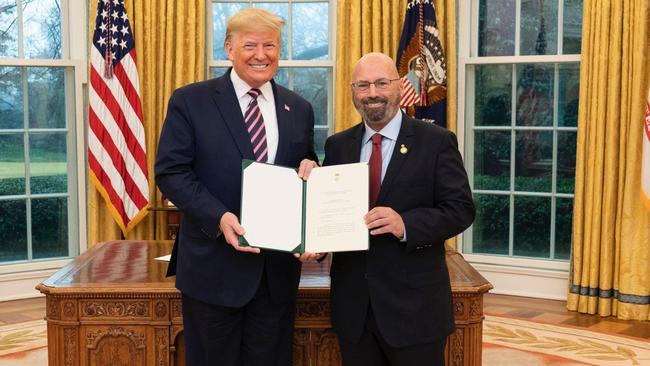
“The way we demand that everybody balances the books as we approach an election, and if you don’t, then people call into question your economic bona fides, I would not expect to see a single damn thing in the budget beyond what is already there,” Mr Beazley said. “But they’ll have to look at it afterwards.”
He backed Defence Strategic Review co-author Peter Dean, who argued for missile defence systems to be prioritised in a substantially increased defence budget, amid growing Chinese threats.
Mr Beazley’s intervention came after Mr Trump’s nominee for head of policy at the Pentagon, Elbridge Colby, declared last week Australia needed to lift military spending to at least 3 per cent of GDP. Defence Minister Richard Marles has signalled the government’s openness to “an ongoing conversation” on the defence budget. But a defiant Anthony Albanese has pushed back, declaring “Australia determines our national interest”.
The Trump administration’s defence spending call, including a demand of 5 per cent of GDP from NATO members, would pump billions into the US economy via its arms manufacturers.
Mr Beazley and Mr Sinodinos said the President’s tariff agenda was underpinned by a need to raise revenue. “People miss the main reason he’s putting on tariffs: it’s not to do with protecting American industry; it’s raising revenue,” Mr Beazley said. “The Republicans have got him trapped because they are not going to allow the budget to continue to go into deficit.”
Mr Sinodinos said the budget imperative was driving the administration’s hard-line approach on trade. “That’s why there’s a faction in the White House who are keen that there not be any exemptions or exceptions from tariff increases this time around,” he said.






To join the conversation, please log in. Don't have an account? Register
Join the conversation, you are commenting as Logout